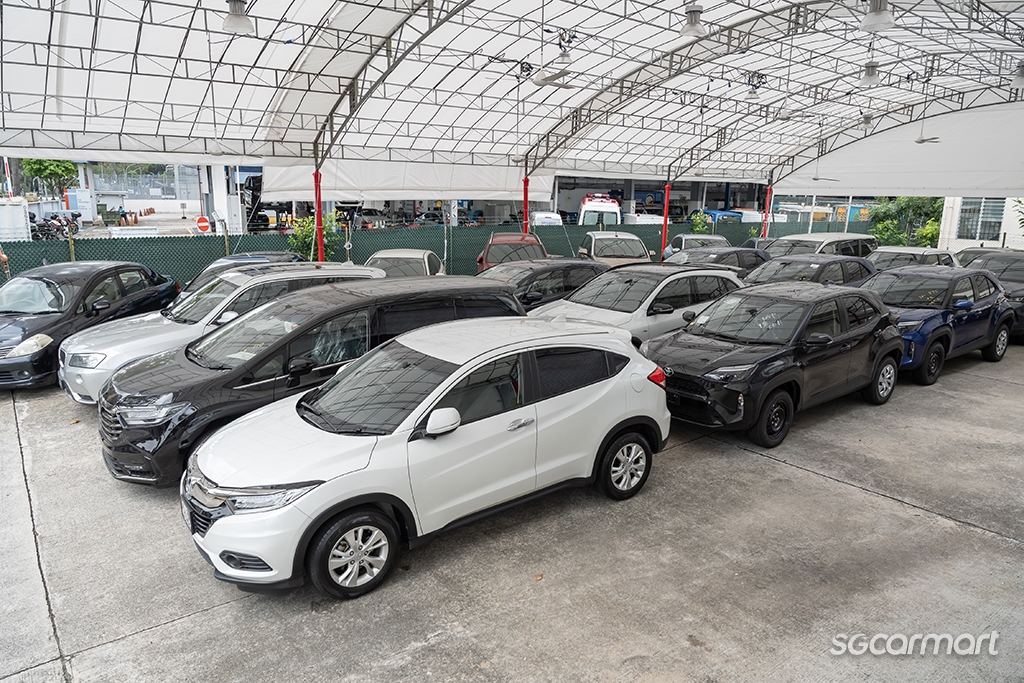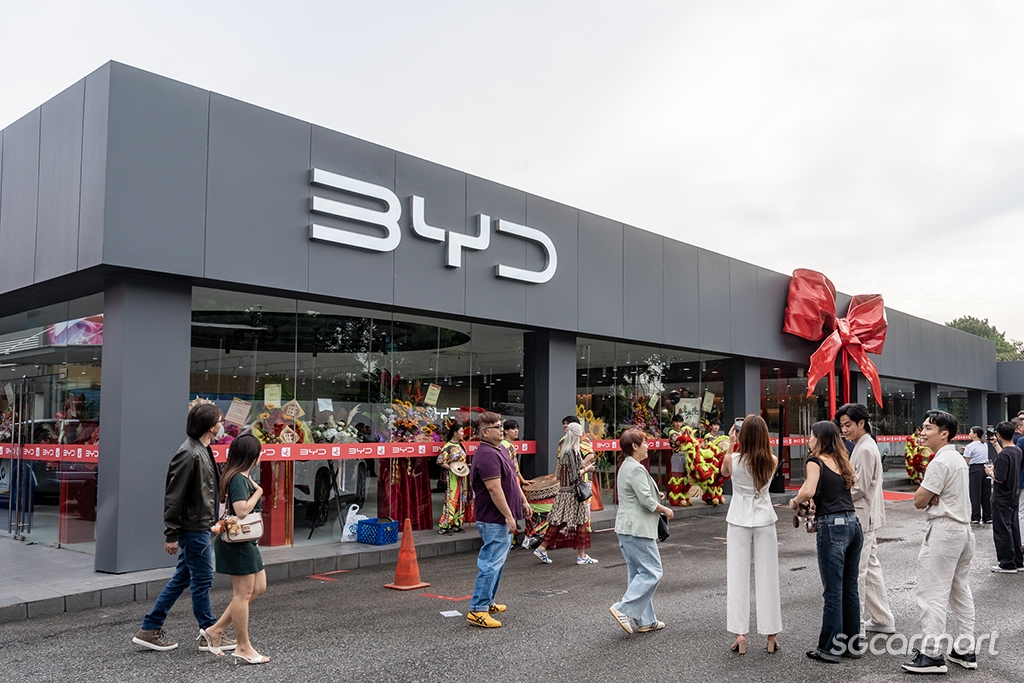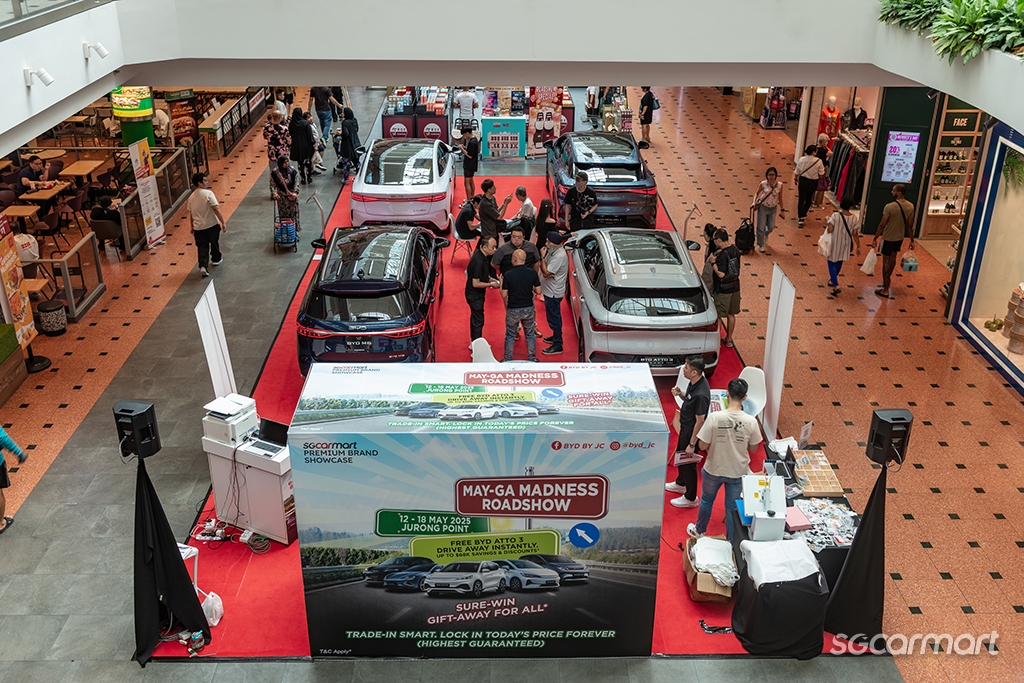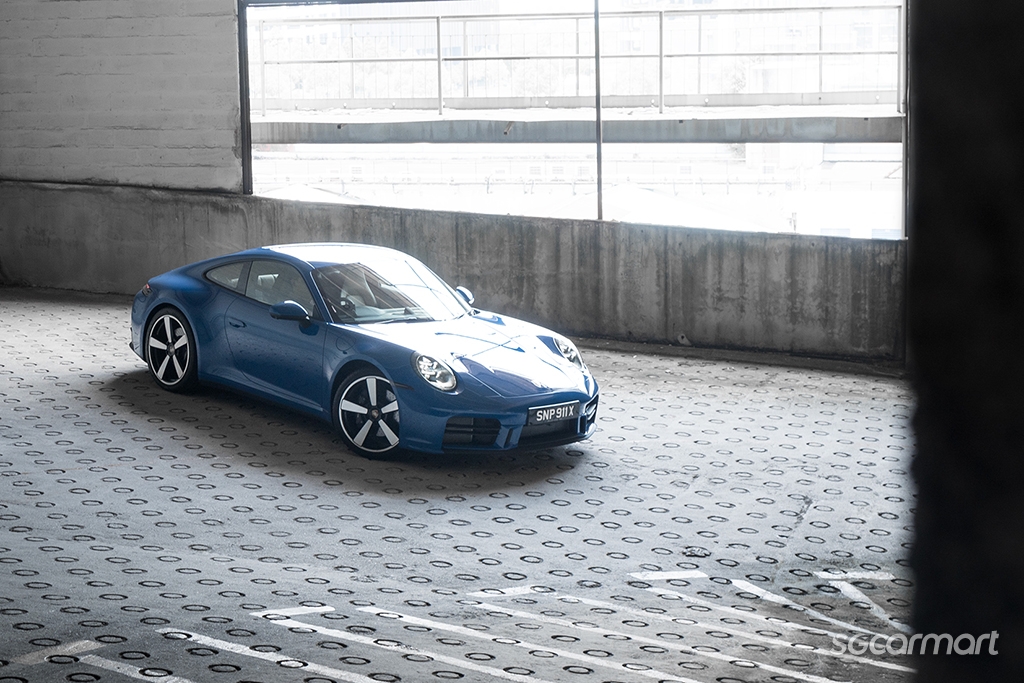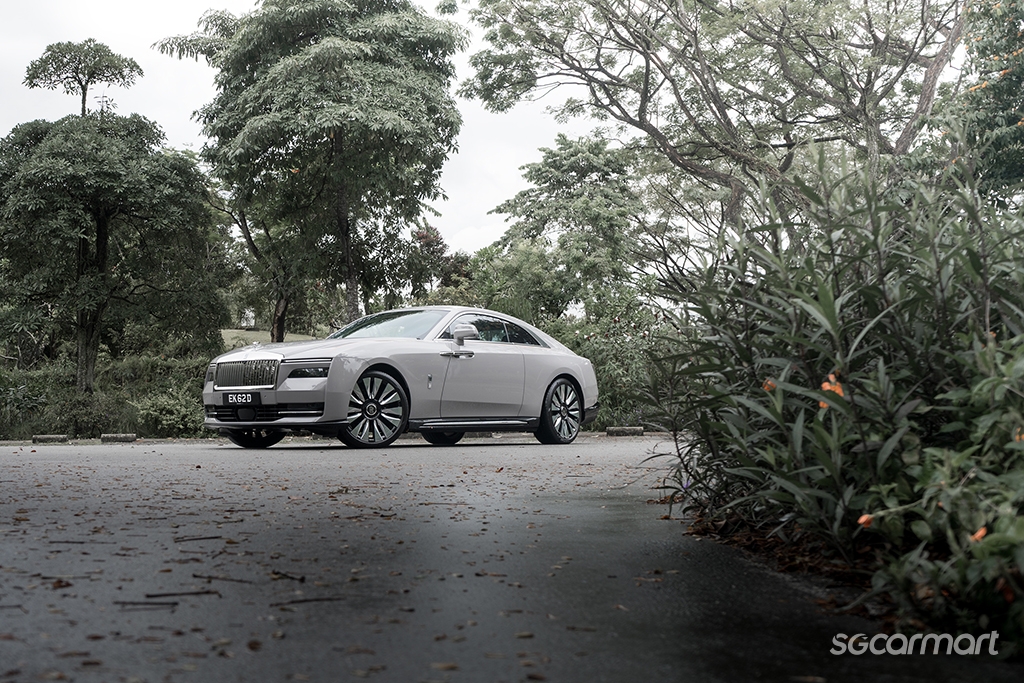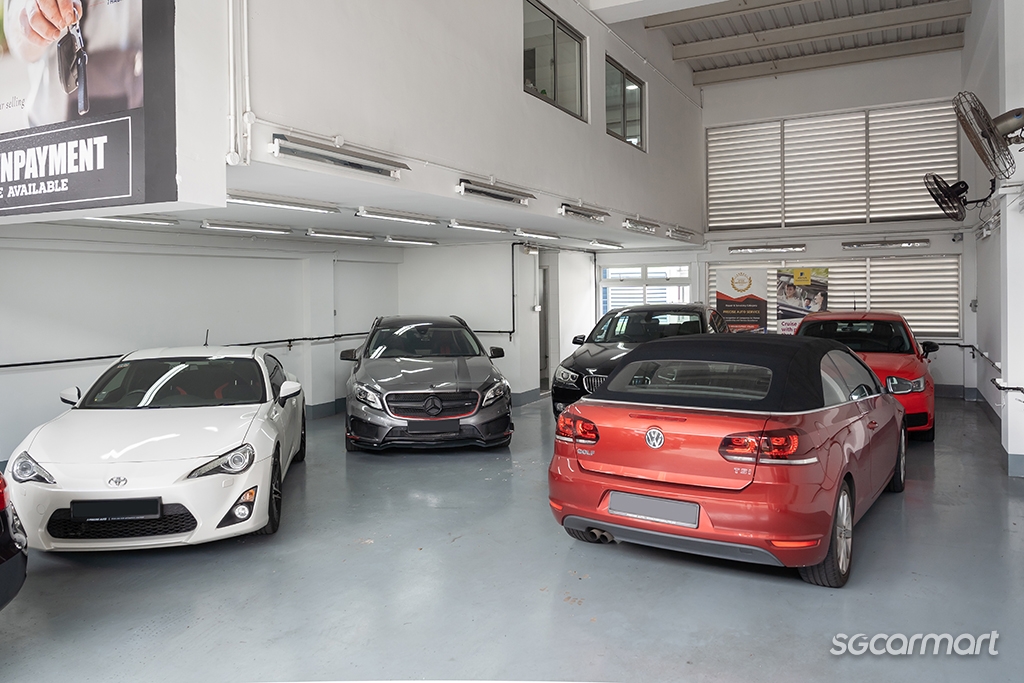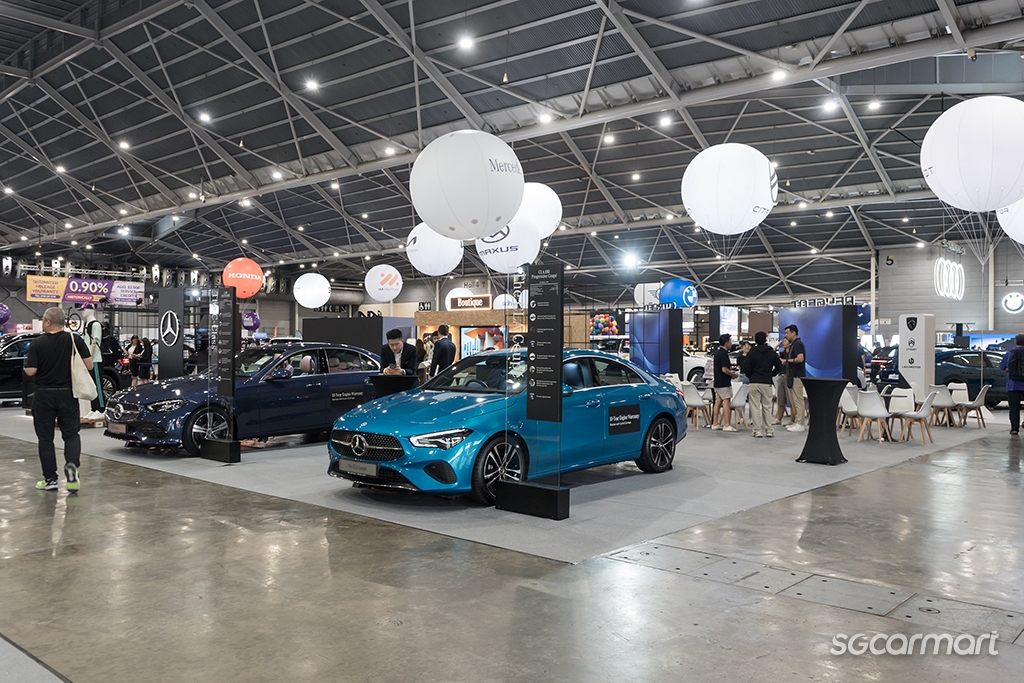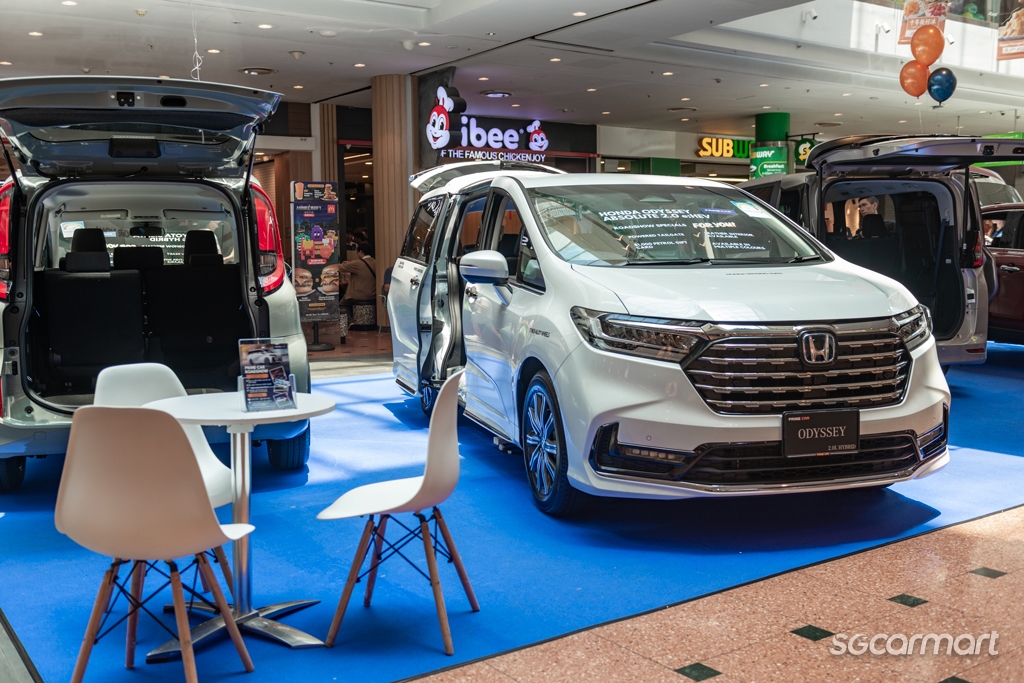Is parallel import hesitancy growing among car buyers?
08 Oct 2025|3,962 views
Over the years, we've seen several reports of parallel importers (PI) running afoul of the law. From forged documents to tax evasion, from unfulfilled car orders to businesses suddenly shuttering, the parallel import market has always brought with it additional risk exposure to potential customers.
But the recent Channelnewsasia report, about a 2022 case of a driver who died after a chain collision, marks the first case in Singapore of a death due to a defective Takata airbag (which underwent a global recall from as early as 2013; over 30 deaths have been recorded globally due to the defect, and the company has been defunct since 2018).
The report also puts a spotlight once more on the parallel import market - the car in question was originally sold by a parallel importer, which has been defunct since 2017. And because of the indirect relationship between such businesses and the manufacturer, PIs would not be directly informed by manufacturers on such recalls. The subsequent onus is then on the parallel importer take note of such recalls, and then to notify LTA and affected car owners. And in a situation such as this one, one question inevitably flows from any Singaporean's tongue: "Whose fault is it?"
But it is also worth examining the broader landscape of the PI market, and ask another question: Where do things stand in the PI market now?
Growing PI hesitancy? Or changing market?
Based on LTA registration numbers, of the 33,233 new cars registered this year through August 2025, PI cars make up just 10.9% (3,631). This figure has fallen significantly since 2023, where it was 21.2%. In 2024, PI cars made up 12.4% of new car registrations. (LTA has only started to separately classify AD and PI registrations since 2023.)
Is confidence in parallel-imported cars falling?
Perhaps several of the success factors for parallel importers have diminished.
One key 'selling point' for buyers going the PI route is lower prices. However, in this sky-high COE climate, the relative difference in prices is likely smaller than before. Put simply, a $20k saving on a $200,000 car looks different than a $20,000 saving on a $120,000 car. For buyers, the increased financial outlay necessary may also incentivise them to choose the "safer" authorised distributor (AD) route.
Another success factor for PIs is the availability of models otherwise not available through the ADs. This applies not just to hyper-niche cars, but also to mass market models as well. However, this is less true than before.
Authorised distributor Borneo Motors has just launched the Noah Hybrid, a popular PI model. The same is true for the Honda Stepwgn, another previously PI-only model that is now also sold by authorised dealer Kah Motor.
It's perhaps indicative of this changing landscape that we have seen a few big-name PI companies also move into the authorised distributor space. Vincar now distributes GAC, Aion and Proton, while Jack Cars is one of the BYD dealers in Singapore (effectively diversifying their businesses).
Jack Cars may be one of the biggest players in the PI space, but has also taken on official dealership of BYD (perhaps as a means of diversifying its business)
Of course, some may also choose the PI route for more immediate availability - this tends to be more true of premium/luxury brands, where a new car may have a waiting time anywhere between six months to a year.
And yet, the numbers seem to suggest otherwise - in fact many of the luxury brands seem to demonstrate the greatest fall-off in PI performance. PI registrations for Porsche, BMW, Mercedes-Benz and Rolls-Royce has fallen significantly since 2023. Conversely, it's the two biggest names that are on pace to outperform 2024 in terms of absolute numbers - Honda and Toyota.
But the overall sales numbers do indicate that the PI market is shrinking, even as the total new car registrations jumped 42% from 2023 to 2024, and is currently projected to increase by 15.9% in 2025.
On the dealer side of things, Sgcarmart data indicates that the total number of PI dealers listed on our portal, as well as the total number of new car listings, have remained relatively steady throughout 2024 and 2025. The data indicated slight growth from Q3 2024 to Q1 2025, but overall numbers have dropped since.
It's here also worth noting the evolving landscape of the new car market - with the recent influx of new brands and numerous electric vehicles. Expectedly, when it comes to new brands and products, potential buyers would certainly be much more inclined to shop from an authorised distributor (though Neta's exit illustrates that that too is no guarantee). With new brands aggressively competing in a zero-sum market, PIs continue to feel the challenge.
Looking ahead
The data indicates that buyers have been moving slightly away from the PI market.
Expectedly, such a tragic and headline-grabbing incident is going to call attention to this area, and raise the question of responsibility. Proportioning fault is a common Singaporean past time, and already you can find comments online that range from "Never buy from PIs" to "LTA's fault lor", and the obligatory "failure in the system".
But no one party can be singularly blamed (though Takata should and has rightfully been held responsible), though there is a worthy conversation that should be had about better oversight and greater clarity especially when it comes to safety issues. And you can imagine that this may bear out more in the future, considering just how technology and feature-laden moderns cars have become.
As cars get increasingly more complex and tech-laden, it's expected that customers would want maximum peace of mind - regardless whether they go down the AD or PI route
However, this incident should not singularly dissuade buyers from going down the PI route, but increased caution from buyers is likely to be expected.
As with any industry, reputation matters. Long established players in the market help mitigate potential risks, and typically are able to offer more in terms of aftersales service. It should be of no surprise that some of the biggest names in the PI market continue to stead well among customers. But those risks will continue to be present. (And it's not as if big names can't fall - just ask Toys"R"Us or Borders.)
Concerns about this particular segment of the market will likely always be overblown in tandem with such headlines, and such customer anxieties exist no matter the market (just ask anyone who's spent any time on Carousell or Shopee). The biggest difference, of course, is the sheer size of that price tag.
But for everyone's personal safety, let's hope that such an incident won't repeat itself.
Over the years, we've seen several reports of parallel importers (PI) running afoul of the law. From forged documents to tax evasion, from unfulfilled car orders to businesses suddenly shuttering, the parallel import market has always brought with it additional risk exposure to potential customers.
But the recent Channelnewsasia report, about a 2022 case of a driver who died after a chain collision, marks the first case in Singapore of a death due to a defective Takata airbag (which underwent a global recall from as early as 2013; over 30 deaths have been recorded globally due to the defect, and the company has been defunct since 2018).
The report also puts a spotlight once more on the parallel import market - the car in question was originally sold by a parallel importer, which has been defunct since 2017. And because of the indirect relationship between such businesses and the manufacturer, PIs would not be directly informed by manufacturers on such recalls. The subsequent onus is then on the parallel importer take note of such recalls, and then to notify LTA and affected car owners. And in a situation such as this one, one question inevitably flows from any Singaporean's tongue: "Whose fault is it?"
But it is also worth examining the broader landscape of the PI market, and ask another question: Where do things stand in the PI market now?
Growing PI hesitancy? Or changing market?
Based on LTA registration numbers, of the 33,233 new cars registered this year through August 2025, PI cars make up just 10.9% (3,631). This figure has fallen significantly since 2023, where it was 21.2%. In 2024, PI cars made up 12.4% of new car registrations. (LTA has only started to separately classify AD and PI registrations since 2023.)
Is confidence in parallel-imported cars falling?
Perhaps several of the success factors for parallel importers have diminished.
One key 'selling point' for buyers going the PI route is lower prices. However, in this sky-high COE climate, the relative difference in prices is likely smaller than before. Put simply, a $20k saving on a $200,000 car looks different than a $20,000 saving on a $120,000 car. For buyers, the increased financial outlay necessary may also incentivise them to choose the "safer" authorised distributor (AD) route.
Another success factor for PIs is the availability of models otherwise not available through the ADs. This applies not just to hyper-niche cars, but also to mass market models as well. However, this is less true than before.
Authorised distributor Borneo Motors has just launched the Noah Hybrid, a popular PI model. The same is true for the Honda Stepwgn, another previously PI-only model that is now also sold by authorised dealer Kah Motor.
It's perhaps indicative of this changing landscape that we have seen a few big-name PI companies also move into the authorised distributor space. Vincar now distributes GAC, Aion and Proton, while Jack Cars is one of the BYD dealers in Singapore (effectively diversifying their businesses).
Jack Cars may be one of the biggest players in the PI space, but has also taken on official dealership of BYD (perhaps as a means of diversifying its business)
Of course, some may also choose the PI route for more immediate availability - this tends to be more true of premium/luxury brands, where a new car may have a waiting time anywhere between six months to a year.
And yet, the numbers seem to suggest otherwise - in fact many of the luxury brands seem to demonstrate the greatest fall-off in PI performance. PI registrations for Porsche, BMW, Mercedes-Benz and Rolls-Royce has fallen significantly since 2023. Conversely, it's the two biggest names that are on pace to outperform 2024 in terms of absolute numbers - Honda and Toyota.
But the overall sales numbers do indicate that the PI market is shrinking, even as the total new car registrations jumped 42% from 2023 to 2024, and is currently projected to increase by 15.9% in 2025.
On the dealer side of things, Sgcarmart data indicates that the total number of PI dealers listed on our portal, as well as the total number of new car listings, have remained relatively steady throughout 2024 and 2025. The data indicated slight growth from Q3 2024 to Q1 2025, but overall numbers have dropped since.
It's here also worth noting the evolving landscape of the new car market - with the recent influx of new brands and numerous electric vehicles. Expectedly, when it comes to new brands and products, potential buyers would certainly be much more inclined to shop from an authorised distributor (though Neta's exit illustrates that that too is no guarantee). With new brands aggressively competing in a zero-sum market, PIs continue to feel the challenge.
Looking ahead
The data indicates that buyers have been moving slightly away from the PI market.
Expectedly, such a tragic and headline-grabbing incident is going to call attention to this area, and raise the question of responsibility. Proportioning fault is a common Singaporean past time, and already you can find comments online that range from "Never buy from PIs" to "LTA's fault lor", and the obligatory "failure in the system".
But no one party can be singularly blamed (though Takata should and has rightfully been held responsible), though there is a worthy conversation that should be had about better oversight and greater clarity especially when it comes to safety issues. And you can imagine that this may bear out more in the future, considering just how technology and feature-laden moderns cars have become.
As cars get increasingly more complex and tech-laden, it's expected that customers would want maximum peace of mind - regardless whether they go down the AD or PI route
However, this incident should not singularly dissuade buyers from going down the PI route, but increased caution from buyers is likely to be expected.
As with any industry, reputation matters. Long established players in the market help mitigate potential risks, and typically are able to offer more in terms of aftersales service. It should be of no surprise that some of the biggest names in the PI market continue to stead well among customers. But those risks will continue to be present. (And it's not as if big names can't fall - just ask Toys"R"Us or Borders.)
Concerns about this particular segment of the market will likely always be overblown in tandem with such headlines, and such customer anxieties exist no matter the market (just ask anyone who's spent any time on Carousell or Shopee). The biggest difference, of course, is the sheer size of that price tag.
But for everyone's personal safety, let's hope that such an incident won't repeat itself.
Thank You For Your Subscription.













